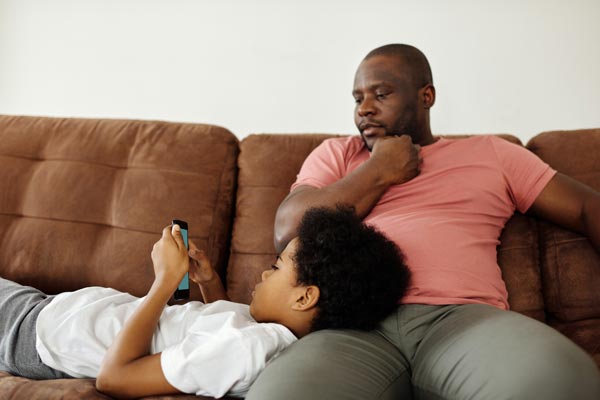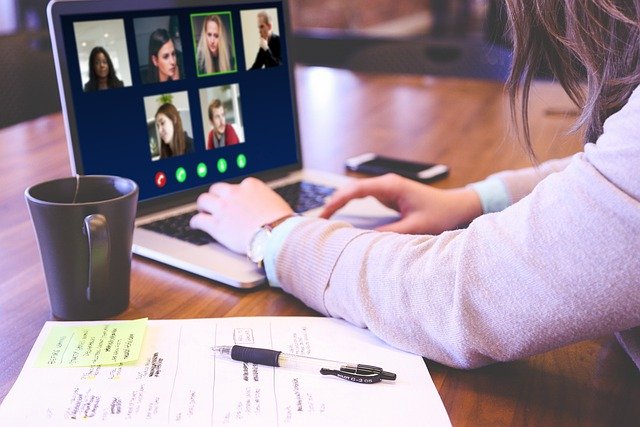
Summer…Summer…Summertime!
June 16, 2020
Pandemic Slide – Is That Really a Thing?
June 30, 2020
Because COVID-19 has forced us to reconfigure the way we conduct almost every aspect of our daily lives, including our children’s educational routine, we now have a unique opportunity to capitalize on our new way of conducting established educational practices.
After reading a recent article by Education Week giving parents guidance on virtual IEP meetings, I took some time to reflect on my own experience of conducting, participating, and observing these virtual meetings and came to the conclusion that difficult, unexpected circumstances can bring about some of the most simplistic and beneficial solutions.
If you are a parent with a child receiving special education services from their school district, you may have felt some uncertainty and anxiety when asked to participate in a virtual IEP meeting. In my role as a special educator, I definitely approached the “newish” process with some trepidation. Fortunately, those feelings were mostly unfounded, and although we may have had some hiccups along the way, it was a fairly flawless, and even enjoyable, process.
Although this may be a new means of meeting for parents and school districts, it is not a wholly new concept. Federal law, under the Individual’s with Disabilities Act (IDEA), already recognizes phone and virtual conferences as a form of conducting annual conferences or initial evaluation/reevaluation conferences, regardless of whether your child is receiving support through a 504 Plan or through an IEP. The section Alternative Means of Meeting Participation, outlines that “the parent of a child with a disability and a public agency may agree to use alternative means of meeting participation, such as video conferences and conference calls.” So, what does this mean for the future of special education conferences? It is my hope that it gives school districts and families more positive opportunities to connect.
When comparing face-to-face conferences to a virtual or phone conference, there are obviously many similarities and differences, as well as advantages and disadvantages. In the grand scheme of life however, the advantages can greatly outweigh the disadvantages, including giving parent’s more flexibility with their own work and family schedules, as well as giving school districts more options for having educational participants present.
A few things that I learned during this new virtual process include:
- Good communication is essential. This may sound like a given, considering that this is an important aspect to any form of meeting, however it becomes even more crucial when participants are not physically present. Once a meeting is scheduled, one important factor to consider is to ask what platform will be used to conduct the meeting (i.e.: zoom, google meets, or even a proprietary system). It is also helpful to find out who will be providing the meeting link and facilitating the virtual IEP meeting.

- Don’t be afraid to ask for clarification. It can be easy to overlook a statement or the omission of information through the virtual platform, but if there is something that you are not clear about, don’t hesitate to ask.
- Ask for the next steps. How will you complete the signature process and in what format will you be receiving your final copy? If you want time to review the proposed IEP, it’s okay to ask for a digital or hard copy prior to agreeing to the document.
- Be certain that you are provided a finalized document with all participant signatures. This is a process that can get lost in the shuffle, and a digital copy is obviously the most expeditious way of receiving your final copy, but your school district should also be willing to provide you with a hard copy if requested.
The US Department of Education has also responded to requests for guidance on the virtual process and our “new way” of doing business by producing a Virtual IEP Meeting Guide. This graphic provides succinct steps to help guide schools and families through the virtual conference process, and it is a helpful tool to have at the ready when working with your school district.
Perhaps my biggest take-away from this process has been that virtual IEP meetings are a very feasible process. We now know that they are very doable, and that we have the technology and the knowledge to conduct them with competence and professionalism. I think virtual IEP meetings are here to stay.
Blogger Lisa Bruns, M.Ed., Special Education, shares her expertise of students with learning disabilities. As a special educator, she has expert knowledge of interventions and accommodations that students may need to succeed in and out of the classroom. If you have questions, please contact Center Director Lisa Bruns at .



